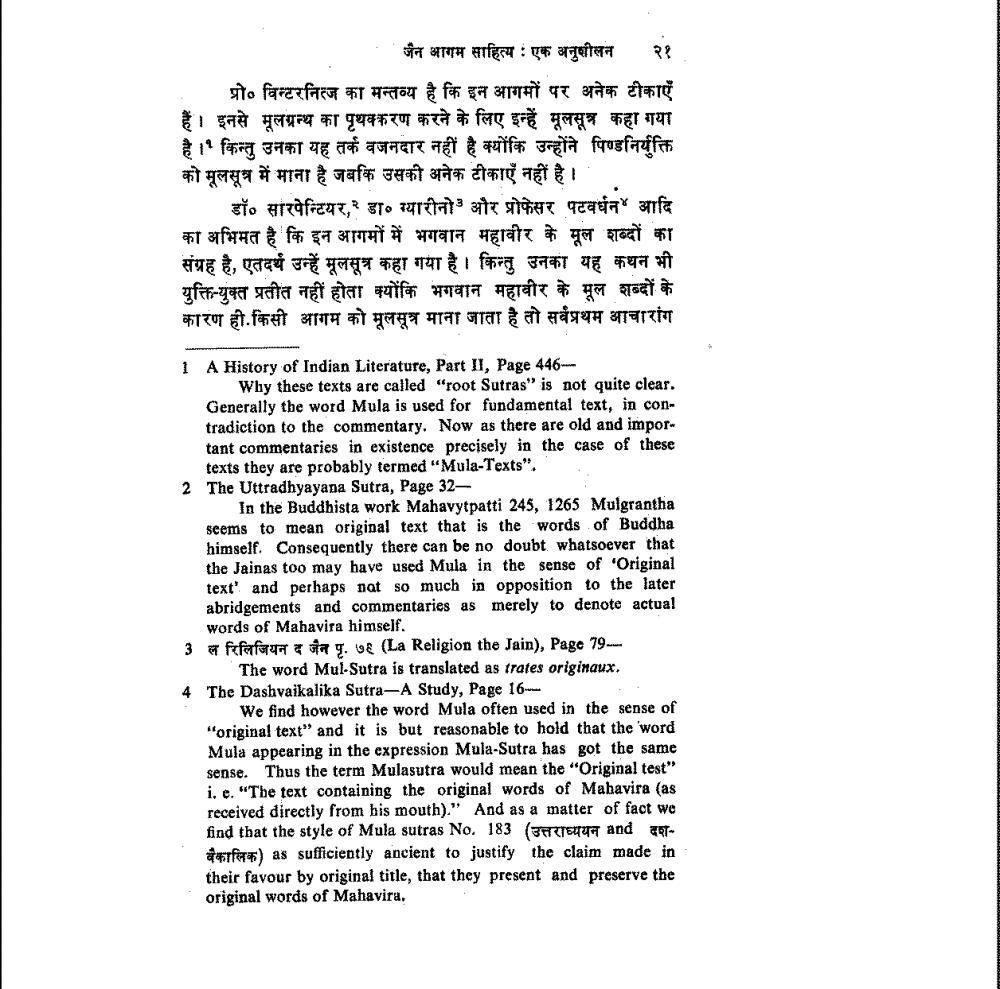________________
जैन आगम साहित्य : एक अनुशीलन २१ प्रो० विन्टरनित्ज का मन्तव्य है कि इन आगमों पर अनेक टीकाएँ हैं। इनसे मूलग्रन्थ का पृथक्करण करने के लिए इन्हें मूलसूत्र कहा गया है। किन्तु उनका यह तर्क वजनदार नहीं है क्योंकि उन्होंने पिण्डनियुक्ति को मूलसूत्र में माना है जबकि उसकी अनेक टीकाएँ नहीं है।
डॉ० सारपेन्टियर, डा. ग्यारीनो और प्रोफेसर पटवर्धन आदि का अभिमत है कि इन आगमों में भगवान महावीर के मूल शब्दों का संग्रह है, एतदर्थ उन्हें मूलसूत्र कहा गया है। किन्तु उनका यह कथन भी युक्ति-युक्त प्रतीत नहीं होता क्योंकि भगवान महावीर के मूल शब्दों के कारण ही.किसी आगम को मूलसूत्र माना जाता है तो सर्वप्रथम आचारांग
1 A History of Indian Literature, Part II, Page 446
Why these texts are called "root Sutras" is not quite clear. Generally the word Mula is used for fundamental text. in contradiction to the commentary. Now as there are old and important commentaries in existence precisely in the case of these texts they are probably termed "Mula-Texts". The Uttradhyayana Sutra, Page 32
In the Buddhista work Mahavytpatti 245, 1265 Mulgrantha seems to mean original text that is the words of Buddha himself. Consequently there can be no doubt whatsoever that the Jainas too may have used Mula in the sense of 'Original text' and perhaps not so much in opposition to the later abridgements and commentaries as merely to denote actual
words of Mahavira himself. 3 ल रिलिजियन द जैन पृ. ७९ (La Religion the Jain), Page 79
The word Mul-Sutra is translated as trates originaux, 4 The Dashvaikalika Sutra-A Study, Page 16--
We find however the word Mula often used in the sense of "original text" and it is but reasonable to hold that the word Mula appearing in the expression Mula-Sutra has got the same sense. Thus the term Mulasutra would mean the "Original test" i. e. "The text containing the original words of Mahavira (as received directly from his mouth)." And as a matter of fact we find that the style of Mula sutras No. 183 (उत्तराध्ययन and दशवैकालिक) as sufficiently ancient to justify the claim made in their favour by original title, that they present and preserve the original words of Mahavira,




